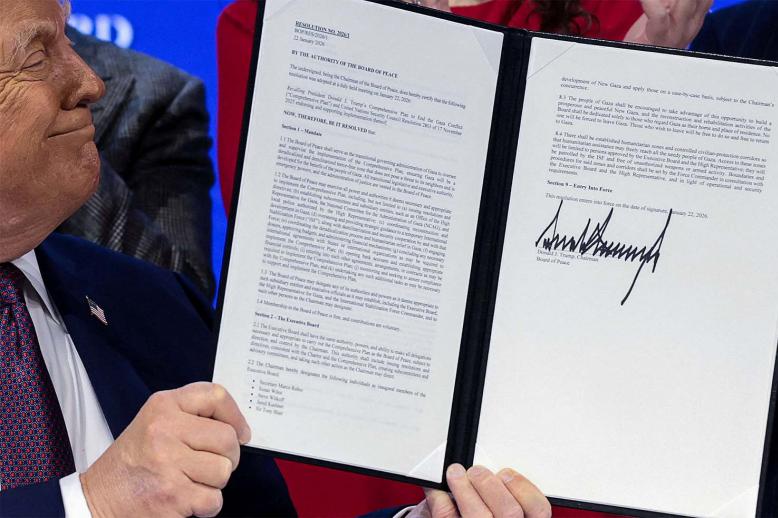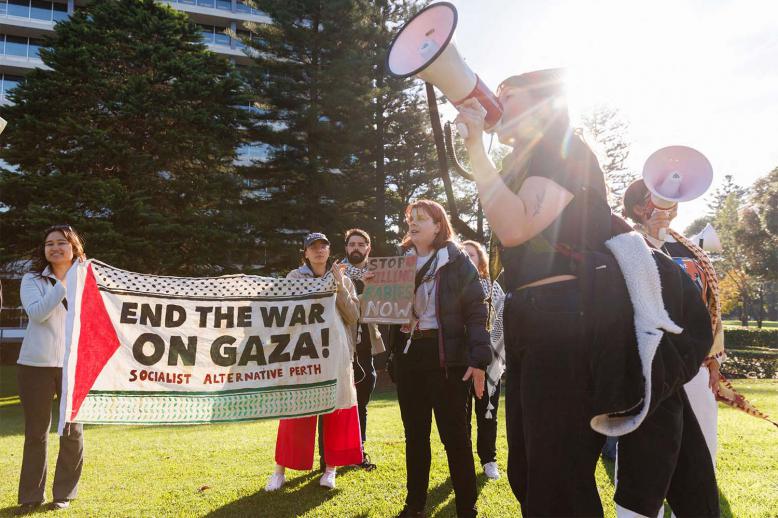Targeting the misery of Syria’s refugees with intellectual bigotry
War often brings out the foulest and ugliest traits in people. Oddly, the most heinous of atrocities transcend the battlefield because they target civilian populations, mainly helpless women and children. The Syrian conflict is no different in this respect.
Since the onset of the Syrian civil war seven years ago, the Syrian people have been subjugated to various forms and levels of violence, ranging from free-falling barrel bombs to chemical weapons to — perhaps worst of all — forced immigration and uprooting people from their homes.
Yet, for the 5 million Syrian refugees who fled to neighbouring countries and beyond, violence takes on many more forms once they leave. This includes xenophobic attacks in their host country, which make their exile even more distressing and tragic. Lebanon has led the way with bigoted attacks against the 1.5 million Syrian refugees in its territories. A satirical song ridiculing refugees is a case in point.
The song appeared as part of a weekly satirical show on Al Jadeed TV, written and produced by Charbel Khalil. The song, which features a traditional Dabke performance, warns that Syrians with their increasing numbers have taken over all aspects of the Lebanese economy, either by stealing basic jobs (taxi drivers, doormen) or through procreation.
Ultimately, the song says, the Lebanese have been transformed into guests inside their own country.
Interestingly, elements in Khalil’s comic song reflect parts of the truth in Lebanon, with its 4 million nationals and crumbling infrastructure struggles with its refugee community. This was what Khalil reiterated after he was accused of propagating hatred. He stressed that his song was political satire, underscoring a crisis that needs to be addressed by the state and the international community.
Be that as it may, what is more alarming about Khalil’s bigoted song is that it is part of a larger pattern of hateful sectarian messages. In many of his works, Khalil not only promotes bigotry against foreigners but also against his fellow Lebanese, specifically in the Muslim community.
Khalil’s irresponsible yet calculated slurs have not always gone unnoticed. Some have fuelled popular protests and inflamed nationwide sectarian tensions. It is no fluke that Khalil’s recent song was released just before Lebanese parliamentary elections.
Khalil wishes to use Syrian refugees as a scarecrow to muster up votes of a certain segment of the Lebanese populace, the majority of whom are Christians and supportive of Lebanese President Michel Aoun’s Free Patriotic Movement. They are beyond convinced that Syria’s Muslim refugees will be naturalised and break the country’s delicate sectarian balance.
Ironically, Khalil’s narrative fails to remind these naturalisation-phobic individuals how the Lebanese government used these 1.5 million souls to solicit funds and donations at the recent conference in Paris. It also fails to acknowledge that Lebanon’s economic calamity is caused by corrupt and inept governments rather than the refugee crisis.
Khalil’s song makes fun of Syrian refugees’ high fertility rate, suggesting they are uncivilised, driven by carnal instincts and unworthy of being treated as equals. Interestingly, throughout the Lebanese civil war, the ultra-Lebanese nationalists used the same bigoted rhetoric against Lebanese Muslims to justify their demands to partition the country and to block the legitimate demands of their fellow Muslims who were merely seeking parity.
When all is said and done, Khalil’s song is a reminder to all Lebanese who allow such a culture of bigotry and prejudice to grow that they could be the next group to be targeted. True civility is refusing to celebrate and ridicule the misery of the Syrians, who after escaping exploding barrel bombs, are now met with barrel bomb intellectuals like Khalil. He is a reminder that war criminals come in all forms and sizes.
Makram Rabah is a lecturer at the American University of Beirut, Department of History. He is the author of A Campus at War: Student Politics at the American University of Beirut, 1967-1975.
Copyright ©2018 The Arab Weekly





